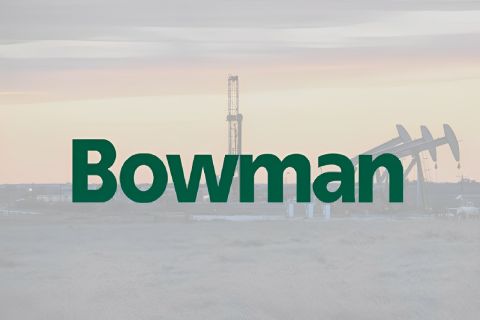By Matt Levine, Bloomberg View The self-acquisition presentation that Kinder Morgan filed Aug. 11 is a great thing to read if you're interested in the question of whether and how financial engineering adds value. One way of describing Kinder Morgan is that it is a big company that owns oil and gas pipelines, with some shareholders who own its stock and some bondholders who own its bonds. But that is not a strictly accurate way of describing Kinder Morgan. In fact Kinder Morgan is not a big company that owns gas pipelines. It's actually four big companies, each of which does some things relating to those pipelines, and each of which has its own investor base. There's Kinder Morgan Energy Partners (KMP), which is a publicly traded partnership that owns a lot of pipelines. There's El Paso Pipeline Partners (EPB), a publicly traded partnership that owns a different lot of pipelines. There's Kinder Morgan Management (KMR), a publicly traded limited liability company that manages KMP. And there's Kinder Morgan, Inc. (KMI), a publicly traded corporation that runs the whole operation, owns chunks of the other bits, and skims some money off the top of what the partnerships take in. Each of the four bits has its own group of shareholders, and three of them have bondholders too. So you have roughly seven different ways to invest in the Kinder Morgan enterprise, depending on things such as your tax situation and your risk appetite and your need for income and your particular asset preferences. It's highly engineered to appeal to different investors in different ways. And yesterday Kinder was like, no, never mind, let's just mash it all back together. KMI will buy the other three companies—mostly for KMI stock, though there's a little cash too—and assume their debts and just be one big company that owns gas pipelines, with its stock owned by shareholders and its bonds owned by bondholders and no more of the headaches that come from managing four different companies. Now one obvious thing to say about this is that nothing is happening. Before there were a bunch of people who owned stock in the Kinder Morgan enterprise. Afterwards, the same bunch of people will own stock in the Kinder Morgan enterprise, and it will be the same enterprise. So, in the aggregate, the value of their stock shouldn't change. Perhaps one bit of the enterprise is getting a better deal in this buyout, but that better deal is just coming out of the pockets of another bit of the enterprise, and all in all the bits should balance. The bits do not balance. Basically, by re-shuffling papers Kinder Morgan has discovered $12 billion of shareholder value. And not just shareholder value: Usually a good way to find shareholder value is by taking it from bondholders, but in fact here the bonds are also trading up, and the enterprise's credit ratings are likely to improve. Every group of investors has made money. Kinder Morgan has created value from nothing. Of course, it did this by reversing financial engineering, which is a bit of an embarrassment, but a contingent one. If financial engineering can have negative value then it can have positive value too. Some ways of slicing up cash flows seem to be more valuable than others, so it can be worth billions of dollars to find just the right way to slice up your cash flows. If you're a skeptic of financial engineering this should trouble you, even though Kinder Morgan is scrapping its particular flavor of financial engineering as over-complicated and unworkable. Now, there are explanations of where Kinder Morgan found all this value, but they mostly won't be that satisfying for skeptics. A favorite explanation seems to be that the four-part structure is too complex for investors to understand, and that investors will pay more for a simple structure. This is problematic in that investors are paid to understand their investments—this is called the "efficient markets hypothesis," roughly—and while this thing is convoluted it is not that convoluted. A further problem with this theory is that there is ample empirical evidence that investors will in fact pay more for things that they don't understand; see, e.g., the global financial crisis. Another explanation comes from the fact that KMI skims a rather controversial amount of money off the top of KMP's income in the form of incentive distribution rights. This makes KMP's cost of capital prohibitively high, deterring otherwise-profitable investments. That seems to be true, but again it's just a zero-sum shuffling of cash flows; if KMP is overpaying KMI for its services then eliminating that overpayment should be as bad for KMI as it is good for KMP. But there's one other place to look for value. If you see a piece of financial engineering that makes everyone involved better off, then a reasonable guess is that it makes somebody who's not involved worse off. There are various possible uninvolved parties, but none is more popular with financial engineers than the IRS. If you can shuffle some papers in a way that saves money on taxes, why wouldn't you? This morning I mentioned that Kinder's shedding of its publicly traded partnerships (which don't pay corporate income taxes) seems like a strange move in an environment where everyone is trying to avoid corporate taxes. But it turns out, it's not that strange! For one thing, the Kinder enterprise is already paying a lot of corporate taxes on the income that those partnerships generate, since a lot of that income is paid to (and taxed at) KMI anyway. So this is not quite a case of a tax-exempt company volunteering to pay taxes. For another thing, Kinder's tax accounting for this transaction involves taking a stepped-up tax basis in the KMP/EPB assets that KMI is acquiring, giving the enterprise large future tax deductions. All in all, it seems as if Kinder Morgan as a group will actually be saving money on taxes. Specifically: Significant income tax savings from the acquisition amounting to ~$20 billion over ~14 years On some dumb simple assumptions you can get a present value for those tax savings of a little under $12 billion. That number looks mighty familiar: It's roughly how much value Kinder Morgan added by announcing this deal. These cash savings are a lot simpler to understand than the fuzzy benefits of the deal like, um, being simpler to understand. Kinder Morgan may have created some value from nothing. But mostly it seems to have created some value from the usual place: by reducing its tax bill. And no one doubts that financial engineering is good for that. Read the full version of this opinion piece at bloombergview.com.
Recommended Reading
EY: How AI Can Transform Subsurface Operations
2024-10-10 - The inherent complexity of subsurface data and the need to make swift decisions demands a tailored approach.
Bowman Consulting to Manage, Monitor Delaware Basin Wells
2024-10-14 - Bowman Consulting Group’s scope of work includes conducting detailed field surveys of above-ground infrastructure assets across well sites of up to to 8 acres.
Classic Rock, New Wells: Permian Conventional Zones Gain Momentum
2024-12-02 - Spurned or simply ignored by the big publics, the Permian Basin’s conventional zones—the Central Basin Platform, Northwest Shelf and Eastern Shelf—remain playgrounds for independent producers.
First Helium Plans Drilling of Two Oil Targets in Alberta
2024-11-29 - First Helium Inc. has identified 10 other sites in the Leduc formation.
DNO Discovers Oil in New Play Offshore Norway
2024-12-02 - DNO ASA estimated gross recoverable resources in the range of 27 MMboe to 57 MMboe.





